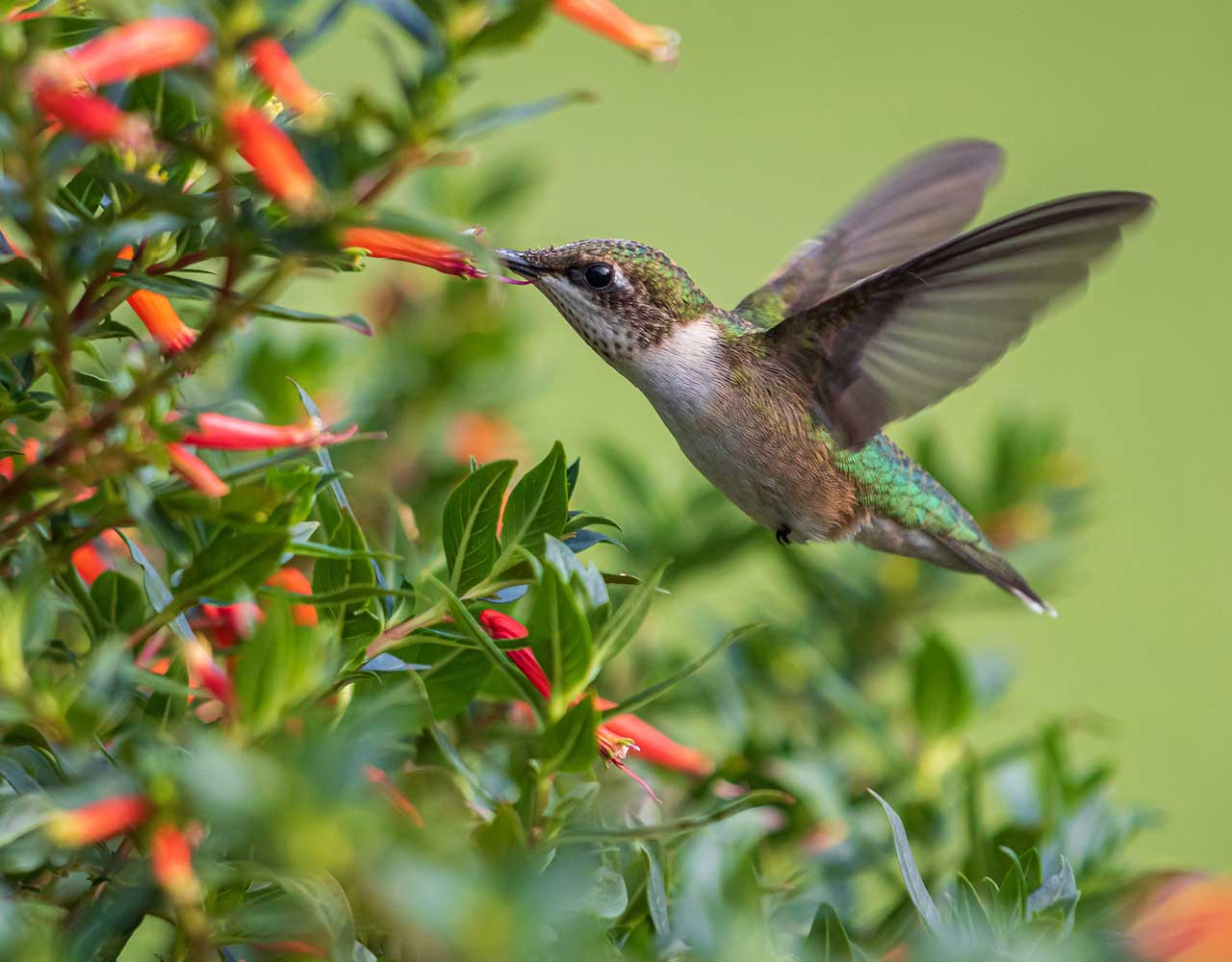Pollinators (honeybees, butterflies, bumblebees and many others) are essential to life on our planet. The Bee Conservancy states, “Of the 1,400 crop plants grown around the world…almost 80% require pollination by animals.” If we lost 80% of our food supply, you can only imagine how we would fight over the remaining 20%.
At Mainscape, we are committed to processes that help preserve our environment. We are constantly monitoring the latest research and tools, and revising processes to protect water, soil and our pollinators. Part of these efforts are recommending and planting plants that support life and reduce the use of pesticides and fertilizers, thereby reducing natural resource consumption.
Here are a few plants to consider during this buzzing month:
Pentas
As a perennial, Pentas enjoy our humid summers. They come in many colors and attract hummingbirds and butterflies. Pentas will grow from 15 inches to 2-3 feet wide. They thrive in well-drained soil and full sun.
Salvias
Salvia enjoy having no serious pests. They attract butterflies and hummingbirds. They are both an annual and perennial, coming in many colors and sizes. They work well as a mass planting, border and even in containers. These beautiful plants work well in partial to full sun.
Firecracker plants
These Florida-friendly plants attract hummingbirds and butterflies, and their beautiful flowers will have an “explosive” impact on your landscape. The leaves are soft with a fine texture, and they bloom year-round. Though mostly in red, yellow and salmon colors are also available. This plant is relatively pest-free and prefers full sun, but it can handle some shade.
We continue to see a decline in many of our pollinators. This is due to poor horticultural practices, continued urban development and many other factors. It is imperative that we all do what we can to create habitats that support life, especially for our pollinators. If you have a bee infestation, please contact a local apiary inspector.
Finally, June 1 brings the beginning of Atlantic Hurricane season. Check out our blog for the steps you should take now to protect your landscape from inclement weather.
